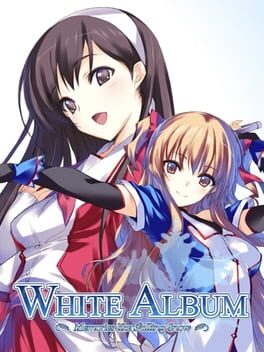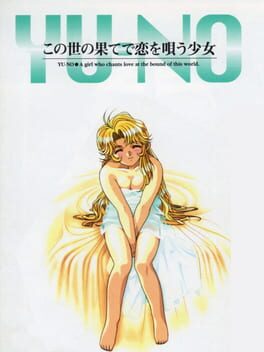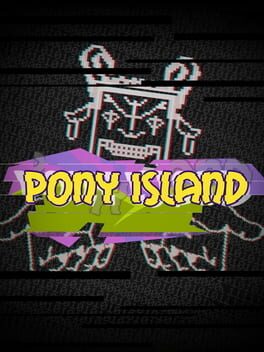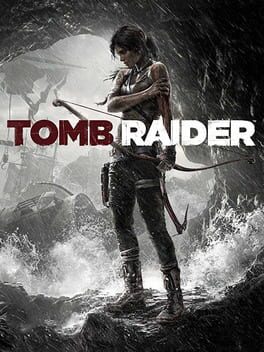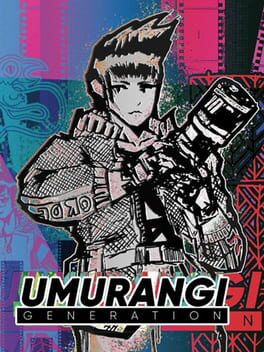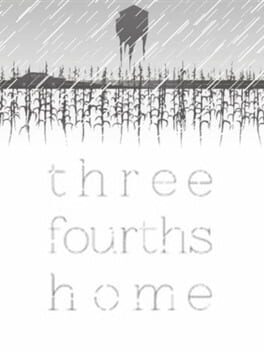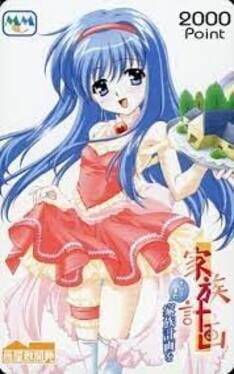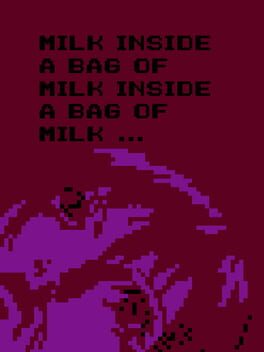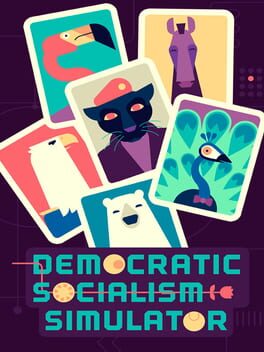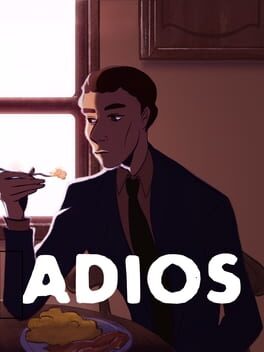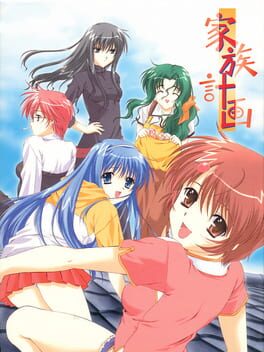mintcake
It has updated graphic, but it's still a dating sim from 1998. It came out at a time when visual novel was transitioning away from adventure game and stripping down the gameplay elements. You can see the visage of an old school dating sim in White Album when you have to choose where to go each day, but the outcome of the story is purely choice-based, you don't need to raise your charm point or study point like in Tokimemo.
Each character in this game is vulnerable and lonely, and they seek warmth from the protagonist one way or another. Some just want companionship, some want love, and some prefer something purely carnal. This is all standard dating sim stuff, but the late 90s Japan setting really adds to the atmosphere. The game captures an anxiety that permeated in the air, and imbues it into each character and makes them feel like real people living in that era, not just objects to obtain in a videogame.
Each character in this game is vulnerable and lonely, and they seek warmth from the protagonist one way or another. Some just want companionship, some want love, and some prefer something purely carnal. This is all standard dating sim stuff, but the late 90s Japan setting really adds to the atmosphere. The game captures an anxiety that permeated in the air, and imbues it into each character and makes them feel like real people living in that era, not just objects to obtain in a videogame.
I tried to play this without a guide. I gave up after two hours. Nice idea for a game system, but we all have other shit to do in our life. Still, I respect the ambition, and the story is engrossing for the most part. If there's one thing in this game that does not need any change, it's the art style. The remake is blasphemy.
2001
Final Fantasy XIII-0, the proof of concept for FFXIII. It turned out a JRPG can succeed while comprising solely of corridors. The next logical step is obviously to take out the towns. One small detail that I simply cannot get over with is the UI for menu, it looks so cheap and uninspiring, when art direction in this game in general has been quite good.
2016
Metagames are a dime a dozen these days, but Pony Island deserves some credits for being ahead of the curve. The actual puzzles are quite easy. The parody platforming sections are not as easy as they seem though, and could be cause of frustration. There are some Christian references dotted around. Religion knowledge is not required, but could enhance the experience.
2013
Obviously borrowed a lot of design from the Uncharted series, but this reboot gave something in return: the limited open area and RPG system added a new layer of exploration and survival element to the formula, which was later seen in The Lost Legacy and TLOU2. The emphasis is on "limited". It didn't try to be an open world collecthon with a thousand icons on the map, nor did it go full RPG with its crafting and leveling up. Such self-restraint is often missing in games from newer generation including its own sequels. It also didn't abandon its old trick of linear action sequence, something we see less and less due to criticism of not being "gamey" enough. As is shown here, the right amount of highly scripted sequences spice things up without making the players feel like they are on auto-pilot, especially when they are paired with other parts of the game that allow player freedom.
2020
I couldn't play the game for more than thirty minutes due to severe headache it induced. Near the end of the game, I finally realized I was supposed to repeatedly smash the jump button to jump higher. As you can imagine, my experience with the game was quite miserable. But there's something evocative about preserving the last generation of human on film. I've seen people say how angry this game is, but that's not the impression I got. Sure the graffiti paints a picture of confusion and desperation. But that's not what we are filming. Ours is the last stage of grief. Under the bleeding sky, people seem to be taking the looming doom quite well, either due to numbness or dignity, or maybe the facts that our friends are with us.
2022
Striking and memorable art, although the game takes a bit too much liberty with homages from, even for an indie title. Unique story, though I did not fully grasp. I do wonder if the creators intended for the players to figure out the vast amount of references pulled from different cultures, or they entrusted the task of decoding their game to Youtubers all along. Uneven gameplay. Puzzles are generally interesting. Limited inventory is horror game staple, but the backtrack with key juggling sucks the momentum out of the game. Tying the ending to play style is not good design either. It's only reasonable to avoid combat when ammo is limited, enemies can revive, and most importantly, it's not fun. Why should player be locked out of an ending because of it?
2015
2019
A perfect game to chill and unwind. Great gameplay variety keeps the whole experience fresh. Slapstick comedy art style and animation alleviates the frustration of failure in surprising challenging levels. This game pays homage to various classic games by distilling their spirit into the most concise form, and imbuing them into the unique gameplay experience of its own without diluting its vision. The spitting level clearly inspired by LeChuck's Revenge? Pure bliss.
2009
Gibberish galore: the game, featuring the most unlikable cast in the series. I still have to force myself to believe a mainline Final Fantasy game, inspired by Call of Duty of all things, could have no town at all. Unfortunately the story and world design drag down the excellent combat and soundtrack.
Please stop with Lightening Queue nonsense. They only worthwhile thing she did in FF13 is punching Snow in the face.
Please stop with Lightening Queue nonsense. They only worthwhile thing she did in FF13 is punching Snow in the face.
2021
A gem of story telling. It hooks you in at the start with the question "why is he quitting". You go down the memory lane with the protagonist until right before the end when everything comes together, and your curiosity is replaced by an overwhelming sympathy. The protagonist's voice resembles old De Niro in The Irishman, especially the stutter, which leads me to drawing more parallel between the two: lonely old man, shunned by his own child, no purpose or joy in life. The PC port sadly is bit shoddy. I got stuck a few times, had to redo certain sections, and there's one part of the game where I simply had no idea how to complete using mouse and keyboard so I resorted to controller.
2001
Kazoku Keikaku has the making of a great TV show: downtrodden of the society making a living by relying on each other. They call them a family knowing it won't last, but that doesn't stop them from forming trust and bondage. All characters have different background and personalities, and specifically, weaknesses that can only be covered by other members of the family, as well as traumas that can only be healed by the right man, you.
This game touches a part of Japanese society that very few games dare try. Persona 5 and Yakuza series like to present themselves as a gateway to Japan's dark side, but they can't deal with organized crime, drug, prostitution, human trafficking, fraud and the scariest of them all: economic crisis, in the same visceral way (partly due to age rating). Between the gags and lovey-dovey, they game lays bare the tragic pass of each character. It's so plausible, like things you'd heard from local news. It hits you like a truck when you realize there are people out there just like characters in this game, but they are not as lucky as they don't have a family, even a fake one, to fallback to.
The only problem I have with this game is perhaps the limitation of the genre: sexual relation has to be the end goal of each story path even when it feels out of place and far less suitable then a sibling or even parental relation.
This game touches a part of Japanese society that very few games dare try. Persona 5 and Yakuza series like to present themselves as a gateway to Japan's dark side, but they can't deal with organized crime, drug, prostitution, human trafficking, fraud and the scariest of them all: economic crisis, in the same visceral way (partly due to age rating). Between the gags and lovey-dovey, they game lays bare the tragic pass of each character. It's so plausible, like things you'd heard from local news. It hits you like a truck when you realize there are people out there just like characters in this game, but they are not as lucky as they don't have a family, even a fake one, to fallback to.
The only problem I have with this game is perhaps the limitation of the genre: sexual relation has to be the end goal of each story path even when it feels out of place and far less suitable then a sibling or even parental relation.
